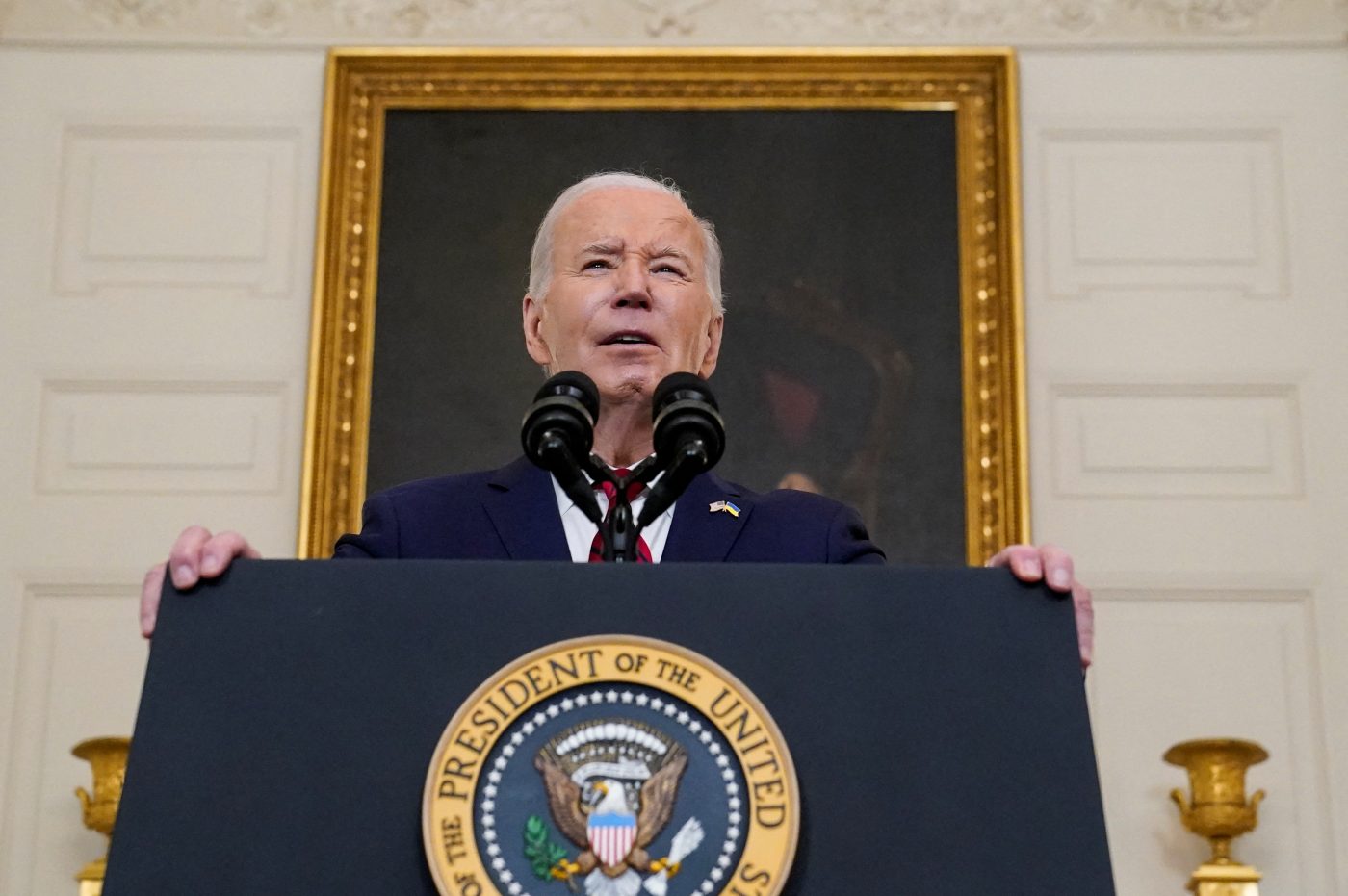There is some joy at its final passage, yet the greatest emotion seems a sense of weary relief that the bill is finally moving forward after months of opposition from hardline Republicans in the House of Representatives.
And there is good reason to be wary. Ukraine may have won a battle for US aid, but it could still lose the war.
For Ukraine, what counts isn’t just the availability of aid, but also its predictability. For Ukrainian commanders to plan a counteroffensive, or decide whether defending a particular town is worth the cost, they have to be assured of a steady flow of weapons and munitions, especially artillery shells. That $61bn may purchase enough supplies to suffice for six months or a year, but Ukraine needs this year after year for years to come.
If the bitter partisan battle in Congress is a taste of things to come, then Kyiv has a problem. Support for Ukraine has become a rallying cry for an extreme fringe of the American public. This isolationist and populist strand of American politics is not new; it has been around since the days of George Washington. Such thinking almost kept America out of World War II until it was too late.
Ukrainians should understand that these Americans are not really angry at their country. They’re just angry, and Ukraine makes a convenient lightning rod. Putin and Xi would tell us that such popular divides are the downside of democracy, though judging by Russia’s failures in Ukraine, and China’s brutality and bullying elsewhere, authoritarianism has far less to recommend it.
Either way, the US political system — partly by design — is vulnerable to gridlock caused by factions that lack the ability to enact their agenda, but can still stop others from accomplishing the necessary tasks of government.
Just as armies need resources to break through fortified lines, politicians need resources to break legislative logjams. That new aid package cost more than $61bn: it also consumed a lot of political capital on Capitol Hill. Mike Johnson, the Republican Speaker of the House, only managed to pass the legislation with the help of Democratic legislators.
Before he became Speaker, Johnson opposed aid to Ukraine. But he changed his mind after intelligence briefings showed why helping Ukraine is in America’s interest. For this, hardliners in his own party, such as Rep. Marjorie Taylor Greene, have vowed to oust him.
The question is what comes next. If Johnson is removed in another bout of Congressional fratricide over who controls the Republican party, the message to other Republicans would be grim. Congressmen and women would have to ask whether backing Ukraine will cost them their jobs. That goes a long way to explaining why a narrow majority of House Republicans voted against Ukraine aid, although almost two-thirds of Republican senators backed it during the final April 23 vote.)
Whoever wins the White House in November must also weigh whether supporting Ukraine will have knock-on effects on the rest of their agenda. If it takes so much political effort to pass military aid to those fighting America’s self-declared enemies, is there an argument to draw back somewhat?
There is no certain outcome. Donald Trump was very clearly persuaded by Johnson not to torpedo the Ukraine-Israel aid deal when the two men met in Florida on April 12. It’s worth noting that within a short period after that meeting, the aid bill and the warrantless surveillance program, both of which the former President had questioned, were passed.
All we know for now is that the situation is not predictable, nor is it logical. Then again, if logic and common sense ruled, Russia wouldn’t be in Ukraine in the first place.
The fact is that Ukraine’s largest and most crucial patron is still the United States, which is itself embroiled in political and cultural conflict.
For now, Ukrainians must contend with two wars: one on their home soil, and the other in the halls of Congress.
Michael Peck is a defense commentator. He can be found on Twitter and LinkedIn.
Europe’s Edge is CEPA’s online journal covering critical topics on the foreign policy docket across Europe and North America. All opinions are those of the author and do not necessarily represent the position or views of the institutions they represent or the Center for European Policy Analysis.





